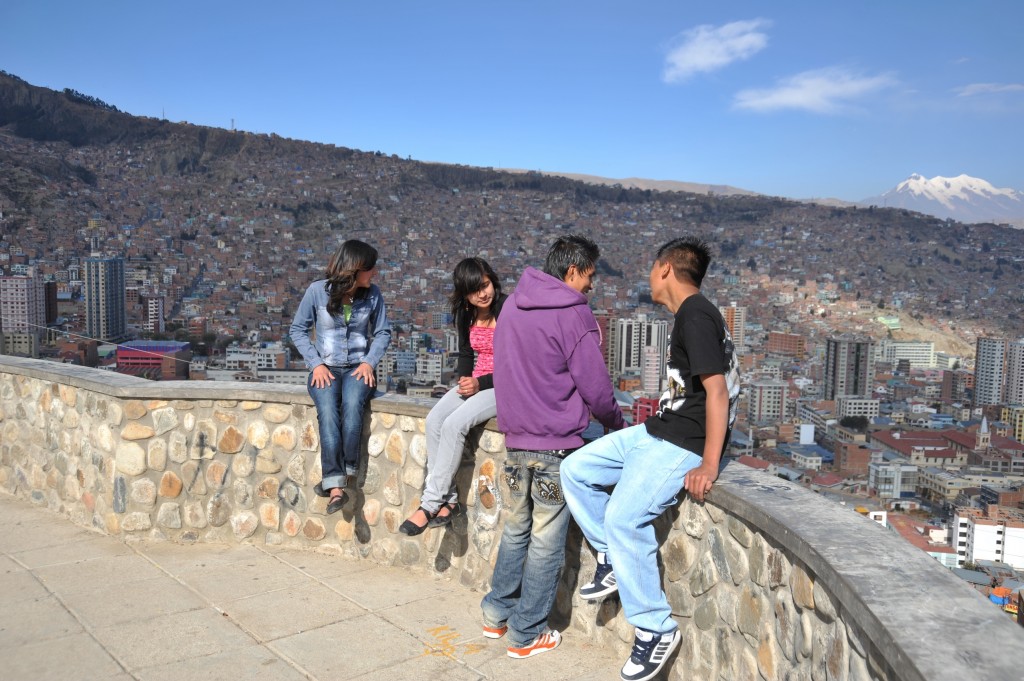How the Rapid Response Mechanism is helping to lower teen pregnancy in Bolivia

By Beth Schlachter, Executive Director, FP2020
Last July, Bloomberg Philanthropies and FP2020 established the Rapid Response Mechanism to be flexible and responsive to urgent gaps in family planning across 69 of the world’s poorest countries. To mark the one year anniversary of its launch, we asked FP2020 Executive Director, Beth Schlachter, to explain how one of the grants funded through this mechanism has made an impact. Below is just one of many examples of the progress made through Bloomberg Philanthropies’ investment in maternal and reproductive health.
In Bolivia, teenagers face damaging myths about contraception: IUDs cause cancer and contraception can make you sterile. With parents reluctant to discuss protection, young adults who want to be sexually active sometimes ask older friends for contraception or simply take their chances and hope for the best. Lack of resources and misunderstandings around how to obtain and properly use contraception has made teen pregnancy a significant problem in Bolivia. In fact, 18 percent of Bolivian girls ages 15-19 are pregnant or have at least one child.
In response, the Bolivian government and Ipas, a non-profit organization focused on empowering women to exercise their sexual and reproductive rights, launched a pilot project to open up to 22 health centers offering youth-friendly contraceptive services in and around La Paz. In partnership with community-based organizations, the project provides a critical opportunity to train providers, facilitate access to contraceptives and dispel the myths around their use. This work is enabling young adults to pursue educational opportunities instead of falling into early parenthood. The project aims to train at least 200 providers and educate dozens of youth leaders on how to talk about contraception and drive referrals to the health centers.
If successful, this one-time investment will provide a model for teen access to contraception that can be scaled countrywide, helping countless Bolivian youth to use modern contraception. It could also serve as a model for other countries in the region.
The project in Bolivia is just one example of the 12 Rapid Response Mechanism projects funded during the program’s first year, with other projects happening across the globe from Asia and Latin America to Africa. A broad group of initiatives have been funded, including a project in Pakistan to help integrate family planning for youth in county-level policies following a government decentralization of services. In Honduras, a project was funded to support the importance of emergency contraception as parliament considers a draft bill abolishing a ban on the morning-after pill.
Since Bloomberg Philanthropies launched the Rapid Response Mechanism as part of a multi-faceted $50-million commitment to FP2020, two other investors have joined the effort, tripling the size of the Rapid Response Mechanism fund. This work is opening opportunities to help women, girls and their families to live healthier lives.
Innovative programs like the Rapid Response Mechanism are critical in helping position family planning front and center as the world defines its development priorities with the post-2015 Sustainable Development Goals. Our success in family planning and reproductive health will underscore the potential that exists to make the world a better place.